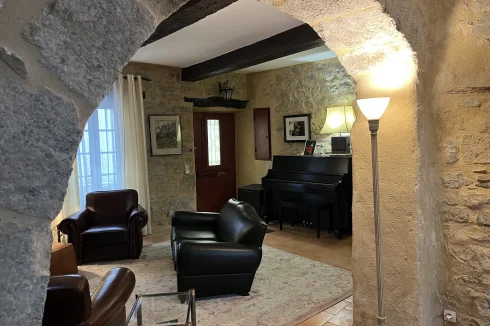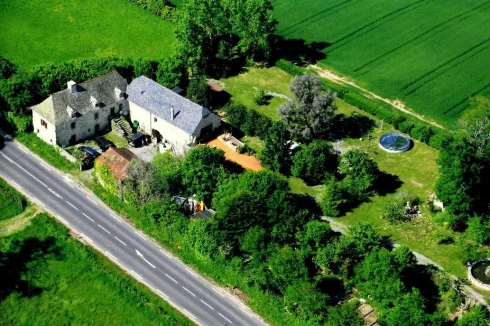Residence Rights in France of Non-European Family Members
Friday 10 March 2023
What are the residence rights in France of Non-European family members of EEA nationals? UPDATED 10th June 2023
Although since January 2021 UK nationals living outside of the European Economic Area (EEA) no longer have the right of free movement in Europe, that is not the case for those who are a family member of a European national.
Under European law, provided an EEA national meets the conditions for a right of residence, they may be accompanied or later joined by members of their family, even though they may not be EEA nationals.
In effect, non-EEA (‘third-country’) family members enjoy a right of residence derived from the rights of European citizens. The rights they enjoy with a residence permit are the same as those of EEA nationals.
When they are nationals of an EEA State, family members of EEA citizens enter and stay in France under cover of their valid passport or identity card, provided they are travelling with their EEA spouse.
For a stay of up to three months, they must merely be in possession of EITHER:
- A passport;
- A visa if they are of a nationality subject to this formality or;
- A residence card issued by a Member State and bearing the words 'carte de séjour de membre de la famille d’un citoyen de l’Union/residence card of a family member of a citizen of the Union'.
If the spouse or civil partner is French, then the residence permit is a carte de séjour vie privée et familiale.
For a stay longer than three months, family members who are third-country nationals are required to apply for a residence card.
No entry visa is required, but that an application for a carte de séjour must be made within the three months of entry. However, a late application cannot be a reason for refusal to grant a residence permit. Alternatively, it is possible to apply on-line before entering France, using the standard France-Visa website.
The persons concerned must prove a family link with the European citizen. They must be either:
- Their spouse;
- Their children under 21 years of age;
- Their children over 21 years of age, provided they are a dependant of the European national;
- Their parents or grand-parents, provided the European national is responsible for their care.
Other persons with a link may also be considered on their merits.
In particular, an unmarried partner of the European national will be considered, provided they can demonstrate a durable and sincere relationship exists. In the case of a registered civil partner, this must be at least one year living together, and in the case of those in free union, proof of having lived together for at least five years.
Other family members who may be considered are those for whom the European national has responsibility/care and those who are gravely ill and need support.
Under European law a permit must be delivered promptly by the authorities, with French law confirming that it should occur 'dans les meilleurs délais et dans le cadre d’une procédure accélérée'.
If the spouse is a French national, an application can only be refused on grounds of fraud or that they constitute a threat to public order. The same general approach is taken with other EEA nationals.
If the EU national does not have a professional activity, the applicant must demonstrate they have 'sufficient resources' (at least the minimum work wage of €1,200 net per month) not to be a burden on the social security system, as well as health insurance cover.
The resources can include those of the EU national and a short-term policy should normally meet the initial requirement for health cover, although if the spouse is employed or in business no specific health insurance cover required. Nevertheless, it would be prudent to hold a policy until the spouse obtains access to the State health system.
If they are to be salaried or run a business, then suitable proof of employment or a credible business proposition must be shown, unless they are to join an existing business with their spouse/partner.
The residence card issued bears the words 'Carte de séjour de membre de la famille d'un citoyen de l'Union/EEE/Suisse -Toutes activités professionnelles'; its duration is aligned with the duration of the host family member's right of residence, but normally issued for five years. The card is issued free of charge, provided application is made within three months of entry into France.
It is not unusual for prefectures to be unable to process applications with the alacrity that might normally be expected, so delays often arise. In all cases, it is therefore important to keep a copy of the temporary consent you will have received, called a 'récépissé de demande de titre de séjour'. This document allows you to remain in France until a decision on your application has been made.
A right of permanent residence can be granted after five years' legal residence.
Death and Divorce
The rights of the non-European national are also maintained in the event of divorce or the death of the EEA national.
In the case of death, existing residence in France of at least a year is normally required, although this condition may be waived.
In the case of divorce, the authorities ordinarily require that at least three years of marriage has elapsed prior to divorce proceedings being launched. However, where custody of the children is to be granted to the non-European national this condition may be waived. The condition may also be waived where divorce has occurred as a result of violent conduct by the European national.
Where the EU national is a French national, a visa for a third-country spouse to enter France for more than three months is still necessary, although it is normally a formality. They may do so using a visa de long séjour/visa de long séjour valant titre de séjour (VLS-TS). Where the former is issued, they later need to apply for a residence permit, called a 'carte de séjour temporaire vie privée et familiale'. They can later apply for a more permanent residence permit.
Thank you for showing an interest in our News section.
Our News section is no longer being published although our catalogue of articles remains in place.
If you found our News useful, please have a look at France Insider, our subscription based News service with in-depth analysis, or our authoritative Guides to France.
If you require advice and assistance with the purchase of French property and moving to France, then take a look at the France Insider Property Clinic.





